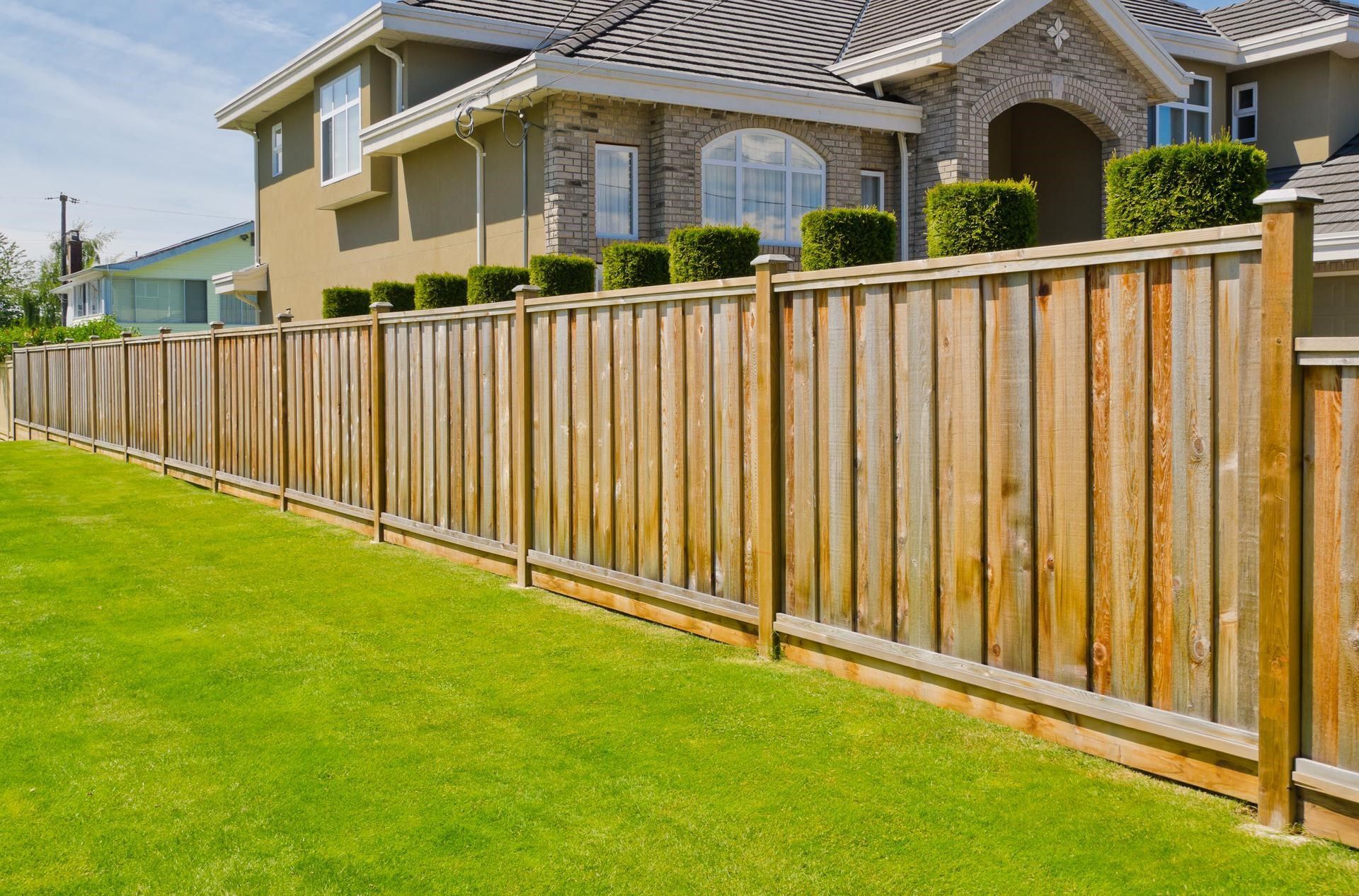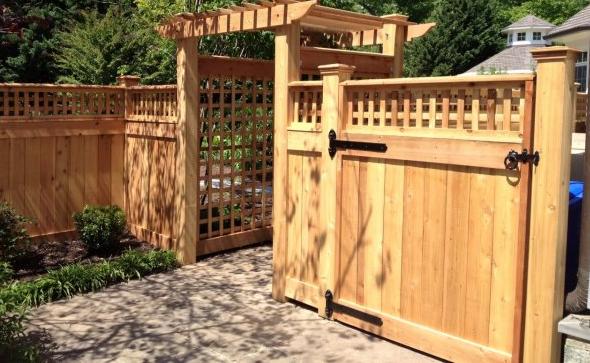All Categories
Featured
If you're taking into consideration mounting a fence around your residential property, comprehending the license needs in your location is necessary. In this guide, we'll break down the various licenses you may require to install a fence and exactly how to guarantee your project stays certified with neighborhood legislations.
Why Are Permits Needed for Fence Installment? Permits are called for to guarantee that the fence you develop adheres to neighborhood building codes, zoning laws, and safety standards. They guarantee that the fence will not obstruct utilities, traffic circulation, or develop dangers for pedestrians.
![]()
Sorts Of Permits You Might Requirement. Structure Authorization. A structure permit is the most common need for mounting a fencing. This authorization ensures that the framework you construct complies with regional safety codes and regulations. You might require to acquire a structure authorization if your fence goes beyond a specific elevation (normally around 6 feet) The regional authorities will commonly review your plans to guarantee that your fence is structurally sound and secure.
Zoning License. Zoning laws govern land use in your area, and they commonly manage where fencings can be installed, as well as exactly how high they can be. A zoning authorization makes certain that your fence abides by these policies. For instance, your fence could need to be held up a certain distance from pathways or residential or commercial property lines. Zoning guidelines can differ by community, so it's essential to examine the details guidelines that relate to your location.
Homeowners Association (HOA) Authorization. If your property is part of a homeowners association, you might need authorization prior to setting up a fence. HOAs often have stringent regulations pertaining to the kind, design, and products made use of for fences to maintain an uniform look throughout the neighborhood.
Specialized Permits. Sometimes, you might need specialty allows based upon the area of your home or the nature of your fencing. If your property is in a flood area, you might require added licenses to make certain that your fence does not block drainage or water circulation. If you plan to develop a fencing near an environmentally secured area, you may require an unique permit to conform with ecological laws.
![]()
Utility Easements and Utility Company Approvals. Prior to mounting a fence, you should examine if your building has an easement. Building a fencing within an easement might conflict with energy upkeep or damages underground lines.
Just How to Figure Out Which Allows You Need. Get In Touch With Neighborhood Authorities. The initial step in determining the permits called for is to contact your local building department or zoning workplace. They can offer certain information regarding what permits are essential for your location. Lots of cities have on-line resources or portals where you can inspect the requirements and even get a license online.
Seek Advice From a Specialist Fence Specialist. A regional fence specialist is often accustomed to the license procedure and regional policies. They can help you browse the needs and make certain that your task is compliant. Several specialists additionally handle the permit application procedure on your part, conserving you time and initiative.
Testimonial Your Neighborhood's HOA Standards. Make certain to assess their guidelines prior to using for any type of licenses if you live in a community governed by an HOA. The HOA might call for specific styles, materials, or elevation limitations for fencings within the neighborhood. Submit your plans to them for authorization before continuing.
![]()
Consequences of Not Acquiring a Permit. Installing a fencing without the called for licenses can lead to significant effects. Prospective buyers might hesitate to acquire a residential property with an unpermitted fencing, particularly if it's in offense of zoning laws.
Final thought. Prior to mounting a fencing on your residential or commercial property, see to it you recognize the local guidelines and acquire any kind of necessary permits. Building permits, zoning authorizations, HOA authorizations, and specialty allows all play a vital function in ensuring that your fence is safe, legal, and compliant. Taking the time to research study and protect the proper licenses will conserve you from costly mistakes and possible legal concerns in the future. Whether you're intending a personal privacy fencing or an ornamental border, following these steps will aid make the setup procedure smooth and hassle-free.
Why Are Permits Needed for Fence Installment? Permits are called for to guarantee that the fence you develop adheres to neighborhood building codes, zoning laws, and safety standards. They guarantee that the fence will not obstruct utilities, traffic circulation, or develop dangers for pedestrians.

Sorts Of Permits You Might Requirement. Structure Authorization. A structure permit is the most common need for mounting a fencing. This authorization ensures that the framework you construct complies with regional safety codes and regulations. You might require to acquire a structure authorization if your fence goes beyond a specific elevation (normally around 6 feet) The regional authorities will commonly review your plans to guarantee that your fence is structurally sound and secure.
Zoning License. Zoning laws govern land use in your area, and they commonly manage where fencings can be installed, as well as exactly how high they can be. A zoning authorization makes certain that your fence abides by these policies. For instance, your fence could need to be held up a certain distance from pathways or residential or commercial property lines. Zoning guidelines can differ by community, so it's essential to examine the details guidelines that relate to your location.
Homeowners Association (HOA) Authorization. If your property is part of a homeowners association, you might need authorization prior to setting up a fence. HOAs often have stringent regulations pertaining to the kind, design, and products made use of for fences to maintain an uniform look throughout the neighborhood.
Specialized Permits. Sometimes, you might need specialty allows based upon the area of your home or the nature of your fencing. If your property is in a flood area, you might require added licenses to make certain that your fence does not block drainage or water circulation. If you plan to develop a fencing near an environmentally secured area, you may require an unique permit to conform with ecological laws.

Utility Easements and Utility Company Approvals. Prior to mounting a fence, you should examine if your building has an easement. Building a fencing within an easement might conflict with energy upkeep or damages underground lines.
Just How to Figure Out Which Allows You Need. Get In Touch With Neighborhood Authorities. The initial step in determining the permits called for is to contact your local building department or zoning workplace. They can offer certain information regarding what permits are essential for your location. Lots of cities have on-line resources or portals where you can inspect the requirements and even get a license online.
Seek Advice From a Specialist Fence Specialist. A regional fence specialist is often accustomed to the license procedure and regional policies. They can help you browse the needs and make certain that your task is compliant. Several specialists additionally handle the permit application procedure on your part, conserving you time and initiative.
Testimonial Your Neighborhood's HOA Standards. Make certain to assess their guidelines prior to using for any type of licenses if you live in a community governed by an HOA. The HOA might call for specific styles, materials, or elevation limitations for fencings within the neighborhood. Submit your plans to them for authorization before continuing.

Consequences of Not Acquiring a Permit. Installing a fencing without the called for licenses can lead to significant effects. Prospective buyers might hesitate to acquire a residential property with an unpermitted fencing, particularly if it's in offense of zoning laws.
Final thought. Prior to mounting a fencing on your residential or commercial property, see to it you recognize the local guidelines and acquire any kind of necessary permits. Building permits, zoning authorizations, HOA authorizations, and specialty allows all play a vital function in ensuring that your fence is safe, legal, and compliant. Taking the time to research study and protect the proper licenses will conserve you from costly mistakes and possible legal concerns in the future. Whether you're intending a personal privacy fencing or an ornamental border, following these steps will aid make the setup procedure smooth and hassle-free.
Latest Posts
What Allows Are Needed for Mounting a Surround My Location?
Published Dec 23, 24
0 min read
Your Premier GMC Dealer in Morris
Published Dec 23, 24
1 min read
Bare Bones Furniture & Mattress
Published Dec 23, 24
2 min read